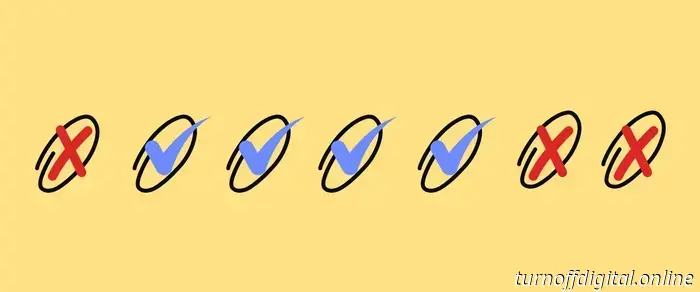-Cal-Newport.jpg)
One of the central themes of this newsletter is the effort to foster sustainable and meaningful work in today's digital landscape. In light of this aim, it's crucial to address the highly disruptive potential of AI.
Over the past few years, in my capacities as a digital theorist and technology journalist, I have dedicated considerable time to researching and writing about this subject. Consequently, I thought it would be beneficial to consolidate my current perspectives on the intersection of AI and work into a single resource.
It’s important to note that predictions in this area are likely to change — perhaps even significantly — as this inherently unpredictable industry continues to develop. Nonetheless, here is my best attempt at assessing the current situation, what is on the horizon, and what may merely be hype.
Let’s dive in…
**Where AI Is Already Making an Impact**
When generative AI made its remarkable entrance a few years back, many anticipated that text generation would emerge as the first significant application. For instance, it was believed that business users would begin to delegate much of their mundane communication tasks — such as meeting summaries, emails, and reports — to AI tools.
Indeed, a considerable amount of this has come to pass, particularly with respect to lengthy, utilitarian communications where quality is less critical. For example, I recently attended a men's retreat, and it was evident that the organizer had used ChatGPT to craft the concluding email outlining the weekend's schedule. And why not? It fulfilled the task efficiently and saved time.
However, it is becoming increasingly clear that for most individuals, writing in their day-to-day lives is not a significant issue that needs addressing, which limits the expected prevalence of this application. A survey of internet users revealed that only about 5.4% had employed ChatGPT to assist with emails and letters, most of whom likely experimented with the tool once or twice before moving on.
Instead, the application that has surged ahead to become the most captivating and widely used is smart search. If you have a question, rather than resorting to Google, you can now consult newer versions of ChatGPT or Claude. These models have the ability to scour the web for information, but unlike traditional search engines, they can also process and summarize the data they find to present only the relevant points. Want it in a specific format, like a spreadsheet or chart? Advanced models like GPT-4 can handle that as well, streamlining the process further.
Smart search has become the standout application of the generative AI era because it enhances an activity that many people already engage in frequently — typing search queries online — into a vastly improved experience. This is reminiscent of electronic spreadsheets replacing paper ledgers or email quickly overtaking voicemail and fax. I estimate that around 90% of the examples I currently observe online of individuals raving about AI's potential involve smart searches.
This behavioral shift is reflected in recent data. A survey conducted by Future indicated that 27% of respondents in the U.S. had utilized AI tools like ChatGPT in place of traditional search engines. From an economic standpoint, this change is significant. Earlier this month, Alphabet's stock price dropped after an Apple executive indicated that Google searches via the Safari browser had declined in the past two months, likely due to the enhanced use of AI tools.
It's important to remember that web search is a massive market, with Google generating over $175 billion from search advertisements in 2023 alone. In my view, establishing itself as the new Google Search is likely the most promising path to profitability for companies like OpenAI, even if it lacks the allure of achieving AGI or automating all knowledge work (which we will discuss later).
Another notable success story for generative AI at this time is computer programming. Individuals with only basic programming knowledge can now develop usable prototypes for simple applications using tools like ChatGPT, and undertake somewhat more complex projects with AI-enhanced assistants like Roo Code. This is particularly beneficial for quickly creating personal tools or developing proof-of-concept for future products. For instance, tech incubator Y Combinator previously gained attention by reporting that a significant quarter of the start-ups in their Winter 2025 batch produced 95% or more of their codebases using AI.
How far can this automation in coding go? Academic computer scientist Judah Diament recently gained traction online for pointing out that enabling novice users to create simple applications isn't a new phenomenon. For over four decades, systems like HyperCard, VisualBasic, and Flash have been dedicated to this purpose. He elaborates: “And, of course, they all broke down when anything slightly complicated or unusual needed to be done (as required by every real, financially viable software product or service).”
This observation sparked considerable backlash — as is often the case with expressions of AI skepticism these days — but Diament's point holds water. Despite exaggerated claims from tech leaders, many professional programmers aren't particularly concerned about their jobs being replicated by language model queries, as much of their work involves experience-based architecture design and

Occasionally, I compile short videos from casual clips recorded on an outdated phone. Here’s the most recent one: #editorial.

In the last four years, an interesting narrative has been gradually developing in the knowledge sector: an increasing curiosity regarding the feasibility of a 4-day ... Read more
A central theme of this newsletter is the pursuit of fostering sustainable and significant work within the digital era. With this aim in mind, it’s ... Read more